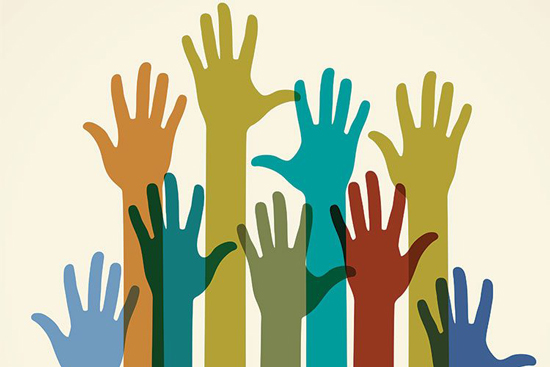The Value and Importance of Volunteering

If every one of us chose to get involved in our local community, the world would be a much different place.
In the pursuit of solutions to our world’s problems many activists have come to understand that if we are ever going to create a more free, ethical, and just world, we must have equality. Many wholeheartedly endorse this need for equality. However, this is not about forced equality or faux compassion achieved via government edict, compulsion, or violence. It’s about the recognition that all human relationships are far more prosperous and mutually beneficial when force or coercion is removed. That is, when all relationships are voluntary and consensual, including the relationship with the government. In this sense we are all equally able to live out our desires without oppression or violence.
The adherents of this philosophy, known as voluntaryism, work to remove force, coercion, and violence from all of their relationships. They choose to interact and communicate without violence and expect others to reciprocate. This philosophy was first coined in the 19th century and has gained a renewed interest in the later decades of the 20th century. The term is often confused with the word volunteerism, which is defined as “the policy or practice of volunteering one’s time or talents for charitable, educational, or other worthwhile activities, especially in one’s community”.
Although these concepts might seem disconnected from each other, many believe they actually reinforce each other. Voluntaryism is a philosophy based on creating human relationships free of coercion. Most voluntaryists recognize that this means the involuntary relationship between government and citizen is immoral due to the inherently coercive nature of the relationship.
Thus voluntaryists work to reduce their involuntary interactions with the government. In their efforts to show other people that government is coercive and unnecessary, many voluntaryists participate in some level of community activism or volunteering, aka volunteerism. In this way, voluntaryism and volunteerism are interconnected as a vital tool for educating community members on the possibilities that await once we remove force and coercion from our relationships.
Beyond taking action in your community to highlight the inefficiency of relying on government for solutions, there are several other practical benefits when you donate your time at the local level. The most obvious is the opportunity to build or strengthen relationships with members of your community or neighborhood. There are thousands of different opportunities for volunteering. One suggestion is to volunteer as close to home as possible so you have the ability to connect with as many of your closest neighbors as possible. Spending time with someone preparing food for the homeless or cleaning up a park or volunteering at a community garden is a great way to get to know them and their motivations.
This also allows you an opportunity to discuss topics and causes that you care about. You can subtly (or not so subtly) plant seeds about the danger of buying into authority worship, or ask your neighbors which issues concern them. If they are resistant, focus on creating a dialogue rather than attempting to convert them to your views. In addition, strengthening these relationships allows for discussions about what your block or your specific neighborhood would do in the event of an emergency. You might spend time discussing the concept of Freedom Cells to gauge the interest of your community.
Getting to know other people in your community through volunteering is also a great opportunity to break down prejudices. Putting your time, energy, and sweat into a project while working side by side with members of your city, town, or neighborhood will often expose you to individuals of different backgrounds, races, ethnicities, and cultures. This is a wonderful chance to learn about the concerns of different sectors of your community, as well as recognize the commonalities between all people, regardless of race, religion, or color.
Finally, spending time contributing to your community provides essential emotional rewards which reinforce the desire for further building community relationships. Frankly, it feels good to help other people. Your brain releases feel-good chemicals as you display compassion and empathy. Through these experiences we are able to identify and understand the struggles and concerns of local community members.
If we ever hope to establish a better world we ought to start by building relationships with our local community and giving our time and energy to empowering our neighbors. As each of us takes this approach we will see a ripple of localization and voluntary volunteerism spread through the global community.
yogaesoteric
April 22, 2018
